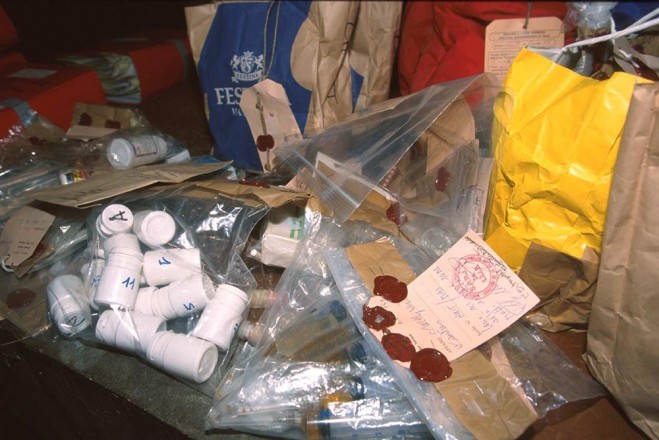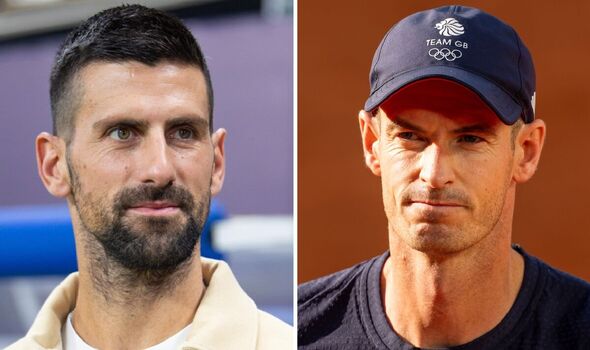- By Andrew Hood
- Published 5 hours ago

Officials have offered up a mix of carrots and sticks to induce former dopers and their entourages to step forward as part of an ambitious investigation into allegations of wrongdoing within the UCI and the larger question of doping within cycling.
On Tuesday, the UCI-funded three-member panel, dubbed the Cycling Independent Reform Commission (CIRC), unveiled ground rules that could see reduced bans for collaborators and potential future bans if they do not come forward during the one-year investigation window.
Dick Marty, the Swiss prosecutor in charge of a three-member panel, told reporters in a conference call Tuesday that the ultimate goal is not to target individual riders but rather to try to root out the doping culture.
“The reduced bans will apply to people who have not been already sanctioned,” Marty said. “For those who have already been banned, and who are still willing to give important information, the commission can advise the competent authorities to reconsider and shorten their bans.”
Marty said cooperating witnesses will remain confidential, and that proceedings will be held behind closed doors.
The UCI is bankrolling the effort to the tune of 3 million Swiss francs ($3.35 million), and wants to have it wrapped up by the end of January next year. Offices will be based in Lausanne, Switzerland, not inside the UCI headquarters in Aigle, Switzerland.
The investigation will be limited from the period from 1998 through 2013, a timeframe that arcs from the Festina Affaire to last year’s racing season.
UCI president Brian Cookson promised the inquiry, an important part of his election manifesto, will operate independently of the cycling federation, and could expand the scope and timeframe of the investigation if it believes it necessary.
Because the investigation has no legal authority or subpoena powers, Cookson called on members within the cycling community to step forward for “good of the sport.”
“If you really care about our sport, this is your chance,” Cookson said. “Now is the time. It’s in everyone’s interest. Frankly, I think we will see a lot of people who will come forward with a lot of information. I would encourage people not to tell just part of the truth, but all of the truth.”
Carrots: Reduced bans, no bans, no refunds of prize money
How many of cycling’s skeletons decide to voluntarily cooperate remains to be seen. Officials admit they cannot force anyone to step forward. The framework for the investigation includes several carrots to entice potential witnesses to come forward.
Chief among them is a possible reduction of racing bans for confessions of past doping activities from two years to six months, with the added bonus of perhaps receiving no ban at all if confessions come with “additional valuable information,” as spelled out in a 17-page document outlining the inquiry’s scope and powers.
There is also a chance for riders currently serving bans to see reductions if they provide vital information to the inquiry. There is no guarantee of a ban reduction, however, as the panel would only be able to recommend sanction reductions to an athlete’s respective anti-doping authority and to the World Anti-Doping Agency.
To further encourage participation, authorities also promised that confessing riders would not be publicly revealed, and that prize money would not be required to be paid back, even if past results were disqualified.
The panel also exempts any action to be taken against any employee of the UCI or the Cycling Anti-Doping Foundation, assuming they fully cooperate with investigators.
That opens the door for whistleblowers at the international governing body to step forward and provide information about the most explosive allegations made against the UCI.
A few sticks
An existing statute of limitations to eight years would still apply for imposing sporting bans, but the UCI does have the power to withhold a license, effectively banning the holder from competition.
That would apply to sport directors, managers, and other staffers required to hold a UCI-issued license to work in the sport.
“If they do not come forward now, but something is discovered in the future [about past activity], he might be sanctioned at one point of his career,” Marty said through a translator. “This is why it’s a big incentive to come forward now, to speak in front of the commission, and have the possibility of a reduced sanction.”
Officials also said information gathered during inquiries could be used against an individual even if that person refuses to cooperate.
Rules also outline a possible eight-year ban if a potential witness does not fully tell the truth, meaning that witnesses need to come clean, or risk a longer ban if it’s later discovered they were not being truthful.
That has major implications for former riders who were active over the past two decades, but are now working with teams as sport directors, coaches, or managers.
“Here is a window of opportunity,” Cookson said. “The danger for someone who doesn’t come forward now, they could have someone give evidence against them. If they have something to hide, they should come forward now, before someone else speaks about your activities.”
Cookson also said if any criminal activity is uncovered, information will be passed along to the proper legal authorities.
“It is a duty to pass on information about wrong-doing, no matter who is involved, whether it was a license holder, or part of an entourage, or part of the UCI,” said Cookson.
Armstrong, Verbruggen, McQuaid
There are three names not mentioned in legal documents, but who are big part of why Cookson and others believe the investigation should be held in the first place: former Tour de France winner Lance Armstrong and former UCI presidents Hein Verbruggen and Pat McQuaid.
An outline released Tuesday signaled that “the investigation into UCI past wrongdoings will also be a core part of the CIRC mandate.”
How far-reaching that inquiry can and will go also remains to be seen.
It’s unlikely that Verbruggen or McQuaid will step forward to help, and since they are no longer directly employed by the UCI, the cycling governing body cannot force them to participate.
“They might find an interest in coming forward to the commission, and we share that interest,” Marty said when queried about Verbruggen and McQuaid. “The past UCI presidents are not current license holders, so we cannot take discipline against them. If we find infractions, we will include them in the final report and submit it to the UCI, who will then make a decision.”
Allegations of cover-up and wrongdoing within the UCI were rife in the U.S. Anti-Doping Agency’s reasoned decision for its disciplinary action that stripped Armstrong of his seven Tour victories and banned him for life.
Former teammates Floyd Landis and Tyler Hamilton have both claimed that Armstrong told them the UCI helped cover up an EPO positive from the 2001 Tour de Suisse, allegations that Verbruggen and McQuaid both deny.
Former U.S. Postal Service soigneur Emma O’Reilly also alleged that the UCI helped Armstrong write a backdated Therapeutic Use Exemption to explain away the presence of banned corticoids found in his urine samples during the 1999 Tour.
There are also questions about donations of $125,000 paid by Armstrong directly to the UCI.
In an earlier interview, Cookson promised that information gathered from UCI computers in the hours following his September election would be at the full disposal of the inquiry to use as the commission sees fit.
Many will be watching to see if Armstrong steps forward. The possibility of a reduction in his lifetime ban will certainly garner his attention, but that would be in the hands of WADA and USADA, as the inquiry could only recommend and has no power to reduce existing bans.
For Armstrong to receive a reduction in his lifetime ban, he would have to serve up some very big heads. There was no immediate response from Armstrong, but he has suggested in some interviews he might be interested in cooperating.
Cookson would only say that Armstrong would have the same conditions of anyone else that steps forward, and said there would be no deals cut beforehand.
“There is an open invitation to whoever wants to come forward, I encourage them no matter who they are,” Cookson said. “I would say to Lance Armstrong or anybody, come forward and offer your information to the commission. There is a clear process that applies to everyone.”
Final report
Officials repeated that their big-picture ambitions are not to go after individuals, but rather understand how the doping culture took a grip of the peloton, and to root out “providers and facilitators of doping in cycling in the period 1998-2013.”
Much of that information has already come out in a series of blockbuster books, police investigations across Europe, and in the USADA case against Armstrong, yet Cookson said the independent inquiry will help cycling restore its credibility.
“I think this is something that cycling has needed for a long, long time. We are all aware of the terrible reputation damage that’s been done to our sport,” Cookson said. “We can expect a very comprehensive report that will be produced with the utmost integrity. What I’d like to see come out of the commission is clear recommendations for the future, of what we need to do at the UCI so that this never happens again.”
Cookson and Marty agreed that the inquiry’s most important task would be the production of a final report that will outline “causes of, and responsibility of, the doping practices that took place within the relevant period, and to make targeted recommendations to the whole cycling family,” as described in a press release issued Tuesday.
Marty and the investigative panel will release the report at the end of its inquiry, promising to outline the causes of doping, and suggestions for change.
FILED UNDER: News / Road TAGS: Brian Cookson / doping / UCI
Andrew Hood
Andrew Hood cut his journalistic teeth at Colorado dailies before the web boom opened the door to European cycling in the mid-1990s. Hood has covered every Tour de France since 1996 and has been VeloNews’ European correspondent since 2002.






Luke Humphries comment about Luke Littler says it all after Players Championship glory
Read more